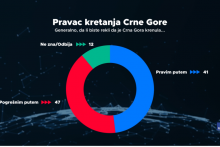The Dutch city of Leiden is preparing a formal apology for its role in colonialism and the transatlantic slave trade. The decision follows a scientific study by Leiden University that revealed strong links between the city and its inhabitants with colonial exploitation and slavery. The apology is part of a broader trend of reassessing colonial history and responsibility in the Netherlands.
Political Perspectives:
Left: Left-leaning sources emphasize the importance of acknowledging historical injustices and the need for formal apologies as a step towards reconciliation and addressing the lasting impacts of colonialism and slavery. They highlight the role of academic research in uncovering uncomfortable truths and advocate for continued efforts to confront colonial legacies.
Center: Center-leaning sources report the facts of the apology and the study without strong editorializing. They focus on the historical findings and the city’s response, presenting the apology as a factual development in the ongoing reassessment of colonial history. The tone is balanced, acknowledging both the significance of the apology and the complexity of historical context.
Right: Right-leaning sources may emphasize the importance of recognizing history but often caution against present-day guilt or excessive focus on colonial past. They might frame the apology as symbolic and question its practical impact, stressing national pride and the achievements of the Netherlands while acknowledging historical wrongs.
































